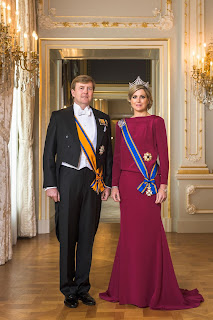A Theory of Everything ; Elegant Information
Ever since the beginning of our so-called civilisation, man
has been fighting against nature, his mind, his consciousness and thus against
himself. In fact, man destroys himself because he cannot or will not understand
how reality (nature) will keep him alive. I have already written a lot about
this 'error of perception'. Man thinks he is above nature or outside it, but
does not see that he is a part of it. So he goes on destroying that nature and
thus himself. The goals he sets for himself, such as an ideology or religion,
are unnatural because they are based on a selection of information and
therefore will not acknowledge or use all the information. This is the first
mistake man makes. By suppressing or denying information, he denies nature, for
information cannot be physically separated from reality, say from the living
world. Thus, in line with Brian Greene's book 'An Elegant Universe', there is
universal and physically elegant information available to inform man how not to
destroy himself. The value of such information has, in my opinion, gone
unnoticed for too long, but research shows that together, as part of the
universe and therefore nature, we are made up of information, matter and
energy. If you add to that our consciousness and powers of observation
(perception), you come to the conclusion that everything is in fact
information. So we, as humans, stand as a door between the objectively observed
outside and the subjectively felt inside of a total reality consisting of mere
information. John Hagelin described this phenomenon as; 'we swim in an ocean of
pure potentiality', of unlimited possibilities. This has been confirmed by
quantum mechanics, which has revealed the subatomic world of which everything
is made up, including you and me, and can be navigated by human questioning and
the 'possibilities'. Elegant Information was and is always present to prevent
damage to social cohesion, happiness, humanity and the environment. This is not
a complex solution but one that is only possible if the truth is allowed to be
expressed and will also be used. But in a totalitarian regime, the first victim
is the truth. Beauty and splendour are always based on truth. Nature cannot lie
to itself because it MUST use all information in order to survive. The universe
is programmed this way. People are also programmed this way, but most of them
are not blind, they refuse to see. Stephen Hawking and other physicists and
mathematicians have been searching for a Theory of Everything for centuries. An
all-encompassing physical description of all physical laws such as gravity, the
speed of light, relativity, time, space and heat, etc. What I have done is
simply reduce these laws to 'information', for as I have described above, the
door to reality, or knowing, is our human perception and processing of
information. But not only through our senses; smelling, seeing, hearing,
touching and tasting, which is called empirical or reductionist perception, but
also through our feeling, imagination, intuition and sensation, our
consciousness, which is called holistic perception. It is here that current
science fails, because it does not consider consciousness or subjective
perception to be scientific. But this is what James Gleick wrote about in his
book 'Chaos', about the end of deterministic sciences being replaced by 'chaos,
complexity and uncertainty', based on 'non-linear' sciences: as follows:
1.
Relativity eliminated the Newtonian illusion of
the absolute.
2.
Quantum mechanics eliminated the dream of a
controllable measurement process. Mechanistic thinking had played tricks on the
human mind. It gave people the illusion of being objective and in control
(looking in from the outside), but subjectivity (the observer effect) is
confirmed by Quantum Mechanics and Quantum Consciousness.
3.
Chaos Theory eliminates the fantasy of deterministic
predictability, but discovered that order from chaos is a natural phenomenon.
4.
Systems theory: everything is connected,
interrelated and interdependent (the observer effect).
5.
Cybernetics. Norbert Wiener, Stafford Beer and
Ross Ashby et al. understood and used this notion of non-linearity and came up
with the solution of the required diversity, namely maximising learning and the
use of information to control and direct energy and matter through the human
mind and actions. Von Foerster spoke of always maximising choices or options.
Paul Pangaro speaks of 'conversation'.
6.
Claude Shannon, Rolf Landauer and Seth Lloyd
state that information is 'physical' and cannot be separated from universal
reality. ‘Information is the resolution of uncertainty’.
7.
The concept of the butterfly effect had to be
introduced into science to understand chaos and complexity theory as
unpredictability (non-linear effects).
Current international, political governance systems do not allow
for this potential. The objectives are restrictive because there are always
surreptitious interests to be served, which I describe as the psychological
disease of 'more'. So it is about us as thinkers, writers and simply as people,
sharing these insights and warning leaders that nature will never allow them to
destroy the world and humanity without destroying themselves too. These laws of
nature do not allow anyone to escape. For an information deficit means
disorder, which in physics is described as 'entropy'. Even if a form of
collectivist neo-fascism is installed, it will also destroy those in power. So
perhaps it is better to think for a moment and 'govern' according to
nature. And that is possible because the
information to do that is already available in balance and in line with
humanity and reality.




I agree with the above, but feel that it is too much abstract for most people to understand.
BeantwoordenVerwijderen